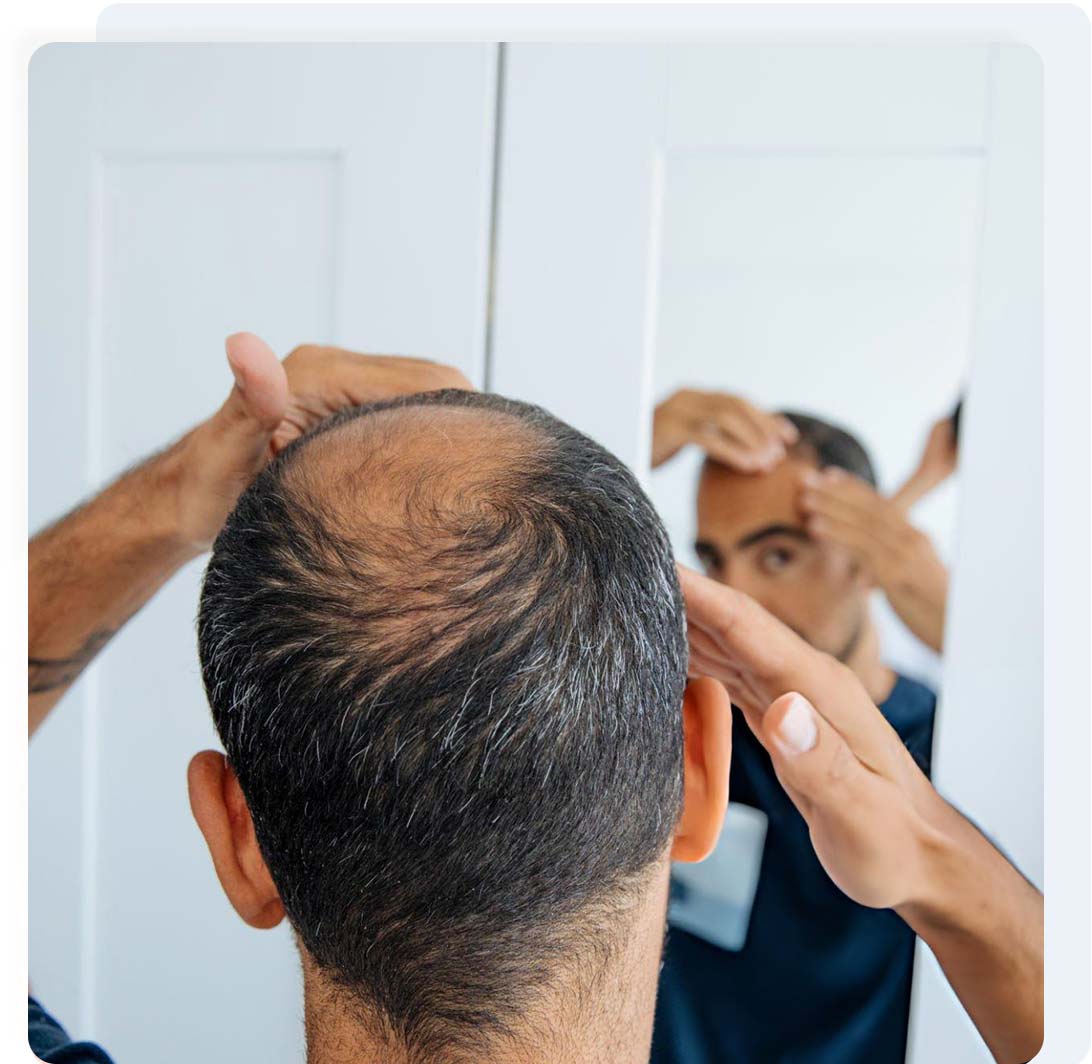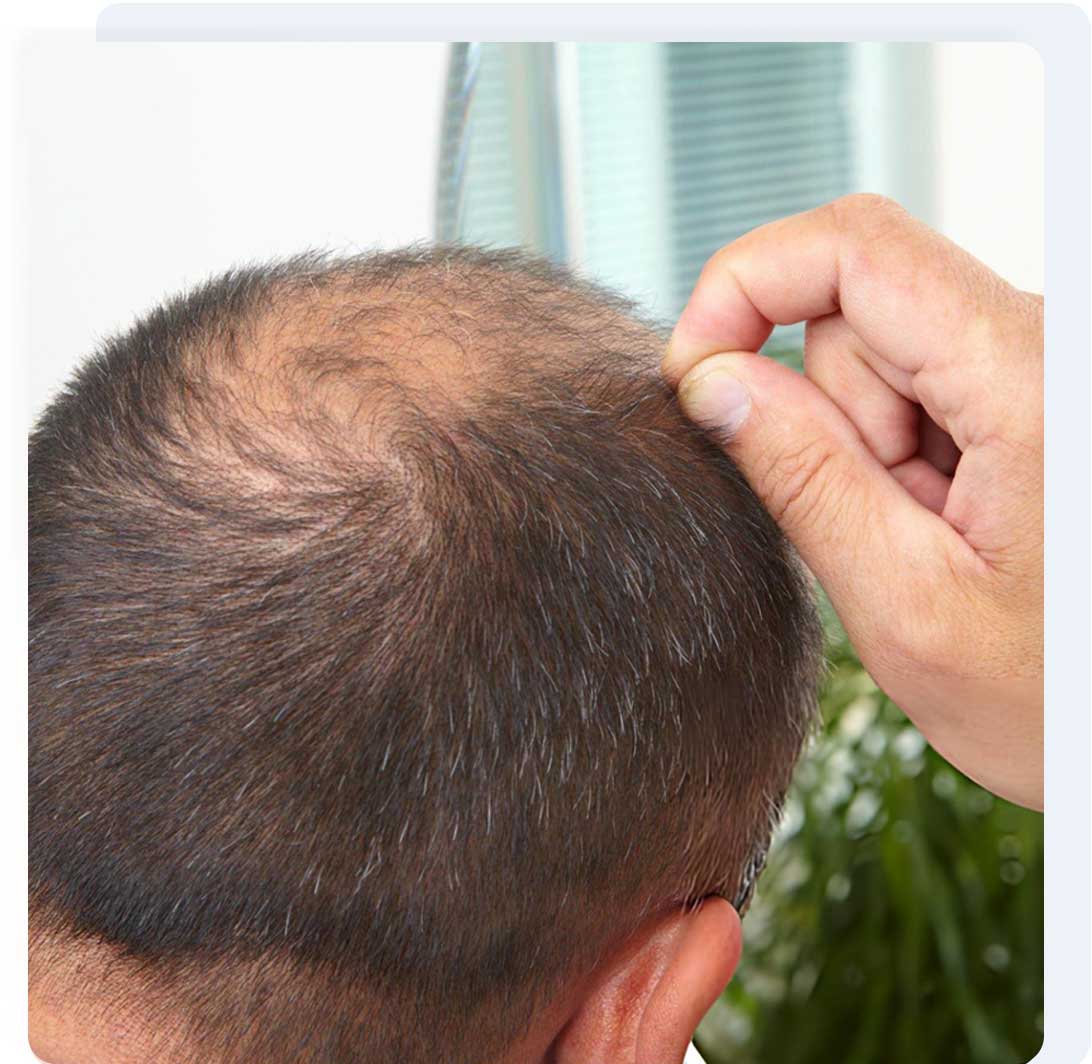Our Australian board-certified doctors are here to give you the care you and your loved ones deserve.

Hair loss or alopecia is a condition in which you lose hair from your scalp or other parts of your body. Losing hair is a normal part of the hair growth cycle as new ones grow and take their place.
In alopecia, hair loss is more rapid than new hair growth and it leaves either patches of baldness or affects your entire skull. Hair loss can be seasonal too and it gets better as the season changes. However, some forms of alopecia can be linked to an underlying health condition and it is important to talk to a doctor to rule them out.
Hair loss can be a long-term problem if the root cause is not managed. Some common causes include:
Nutrient or vitamin deficiency. Such individuals will continue to experience hair fall unless the deficiency is taken care of.
Some underlying chronic health conditions
Taking long-term medications that may contribute to hair loss
Continuous use of hair products with harsh chemicals and styling hair without effective heat protectants


Our telehealth experts can help you reverse hair loss by taking a complete assessment to understand what might be causing it. Once the potential cause is diagnosed, our experts will:
Provide prescriptions/e-scripts with oral or topical medication to reverse hair loss
Suggest hormone or nutrition testing to rule out any imbalance or deficiency
Suggest additional tests to rule out any underlying cause
Recommend supplements if you need them
Educate you about hair products that could lead to hair loss and suggest alternatives
Provide tips, such as massaging your scalp or consuming the right nutrients, to help promote hair regrowth
Provide follow-up appointments to track your progress and remove any barriers
If you continue to struggle with hair loss despite having a balanced diet and trying everything that’s under your control – such as avoiding heat styling or harsh hair products – you need proper hair loss management. This means that a healthcare provider will work with you to determine the cause and potential ways to reverse your hair loss.
Book an appointment today, and our experts will help you reverse hair loss and regain your original hair quality (or even better!). They will work with you and provide ways to get noticeable results and improve hair health.
With an average star rating of 5/5
Hair loss can have several potential causes, such as genetic changes, hormonal changes, scalp infections, nutrient deficiency, use of harmful hair products, frequent hair dyeing, consistent hair treatments, etc. Hair loss can also occur as a result of medications, such as beta-blockers, cancer medications, etc.
Hair loss can be stopped by identifying the root cause and treating it. Some people might be losing hair because of nutrient deficiency and such cases can be reversed by taking supplements and taking care of your body. More complex reasons for hair loss require more care and may also need medications to get better. Some people may lose hair due to certain medications. In such cases, treatment adjustment can help or switching to a different medication if possible can also be considered.
Hair fall might not always respond to food but if it is linked to nutrient deficiency, eating healthy foods that support hair growth can work. In general, foods that contain vitamins, proteins, and biotin can help prevent hair loss and improve hair growth. Some examples include eggs, dairy products, leafy green vegetables like spinach, fruits, seeds, fish, walnuts, almonds, etc. These foods do not act as ‘magic remedies’ but can improve hair growth in the long run.
You can increase hair growth by maintaining a healthy diet and hydration. You can also massage your scalp to promote hair growth with healthy hair oils, such as castor and coconut oil. This can enhance the blood flow toward your scalp and can strengthen your hair roots. Hair growth might be enhanced if you avoid using too many hair products or styling your hair with heat frequently.

February 17, 2026
You need time off work due to illness. Your employer wants a medical certificate. Is an online option legally acceptable??…
Read Article >>
February 16, 2026
Many people who have had their tonsils removed assume they cannot get strep throat. This is a common misconception. Strep…
Read Article >>
January 30, 2026
Your GP hands you a pathology form with "FBC" written on it. You nod and take it, but you're not…
Read Article >>